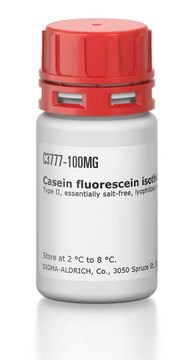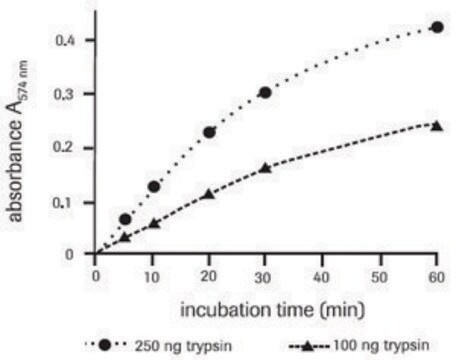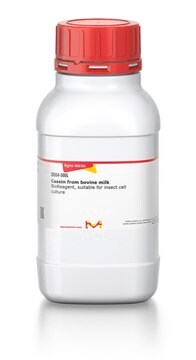C0528
Casein fluorescein isothiocyanate from bovine milk
Type III, essentially salt-free, lyophilized powder
Synonym(s):
FITC-casein
About This Item
Recommended Products
type
Type III
Quality Level
form
essentially salt-free, lyophilized powder
extent of labeling
≥50 μg FITC per mg solid
solubility
water: 5 mg/mL, clear to hazy
storage temp.
2-8°C
Looking for similar products? Visit Product Comparison Guide
Application
- in accessing zona pellucida (ZP) and perivitelline space (PVS) to evaluate changes induced by protease treatment
- to make a reference line in immunochromatographic devices
- in running gel for the documentation of proteinases
Biochem/physiol Actions
Storage Class Code
11 - Combustible Solids
WGK
WGK 3
Flash Point(F)
Not applicable
Flash Point(C)
Not applicable
Personal Protective Equipment
Certificates of Analysis (COA)
Search for Certificates of Analysis (COA) by entering the products Lot/Batch Number. Lot and Batch Numbers can be found on a product’s label following the words ‘Lot’ or ‘Batch’.
Already Own This Product?
Find documentation for the products that you have recently purchased in the Document Library.
Customers Also Viewed
Articles
Get better detection and quantification of proteases with this high-sensitivity red protease detection assay.
Our team of scientists has experience in all areas of research including Life Science, Material Science, Chemical Synthesis, Chromatography, Analytical and many others.
Contact Technical Service












